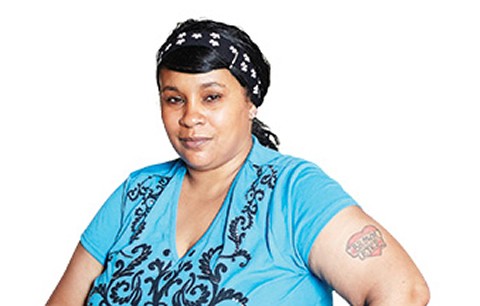Four ideas out of 23 for building an even better Toronto
Boost the diversity of the region’s political candidates.
In a region where about 40 per cent of people belong to visible minorities, elections often serve as a reminder that the politicians who represent Greater Toronto don’t reflect the diversity of the city’s inhabitants. During the 2011 federal election, only one-fifth of the candidates who ran for the three major parties in the region’s 47 ridings were visible minorities.
Erin Tolley, a political science professor at U of T Mississauga, says this lack of diversity can be traced to the riding-level nomination process. Parties tend to select visible minority candidates to run in ridings with high concentrations of visible minority voters. Since the number of those ridings is limited – even in Toronto – the number of visible minority candidates is effectively capped. Elsewhere, she says, “Riding associations may have blinders on because they do not believe a visible minority candidate can win.”
Tolley’s analysis suggests a possible solution: when riding association executives themselves are more diverse, they are more likely to recruit candidates from underrepresented groups. As Tolley says, “Some of it is just, who did you approach, and what organizations did you go to?”
Provide ways for kids with disabilities and able-bodied children to play sports together.
The Pan Am and Parapan Am Games showed Torontonians what athletes of all abilities can accomplish. And yet they also remind us that the sports world is divided: disabled athletes do not compete against – or play on the same team as – their able-bodied peers.
This is unlikely to change at the elite level anytime soon, but two U of T professors are piloting a novel program that gives kids with and without disabilities the chance to play sports and improve their fitness together.
Prof. Kelly Arbour-Nicitopoulos, of the Faculty of Kinesiology and Physical Education, and Prof. Virginia Wright, of the department of physical therapy, say their program, Igniting Fitness Possibilities, is designed to help youth develop active lifestyles and increase their confidence and self-esteem. “It brings together kids of all abilities so that they can learn from one another and build on each other’s strengths,” says Arbour-Nicitopoulos.
According to a report released earlier this year, only nine per cent of Canadian youth between the ages of 5 and 17 are getting the recommended levels of daily physical activity. Numerous studies have also indicated that physical activity among children with disabilities is even lower, although no national statistics are available.
While taking part in Igniting Fitness Possibilities, youth from Grades 4 to 12 work with a personal coach for 20 weeks to develop sport-specific skills and set goals for their physical activity. In partnership with community facilities, Arbour-Nicitopoulos and Wright, who is also a scientist at the Bloorview Research Institute (at Holland Bloorview Kids Rehabilitation Hospital), will be conducting two sessions this fall involving about 30 kids – at the Athletic Centre on the St. George Campus and at the Abilities Centre in Whitby, Ontario.
Help the homeless by giving them a place to live.

At any given time, homelessness affects an estimated 5,000 people in Toronto. Many suffer from mental illness and chronic physical conditions, and are frequently hospitalized. Substance abuse problems are common and many die prematurely.
Dr. Stephen Hwang, a U of T professor of medicine and public health, is the co-author of a recent study that provided almost 700 homeless people in four Canadian cities with subsidized apartments and then tracked their health – and whether they were able to remain in their home – over a two-year period.
Traditionally, homeless individuals in Canada have been required to undertake treatment or rehabilitation (if needed), before being provided transitional housing. Only after that can they gain access to permanent housing.
But Hwang’s study found that giving homeless people immediate access to a subsidized apartment, with mental health support, was far more effective in rapidly ending homelessness than the traditional approach, and had significantly greater success in keeping people housed. “Having a home is the first step to recovery,” says Hwang. “Our next challenge is to help people who were previously homeless to move forward and achieve recovery. If we put our minds to this, we can build a healthier city where no one is left behind.”
Provide legal information to tenants who are experiencing housing-based discrimination.
With the Toronto region confronting a sustained housing affordability crisis, the risk of losing an apartment for low-income people or those who face discrimination, such as social assistance recipients, can be calamitous. Home prices have gone through the roof, and new condos, while frequently rented out, aren’t subject to the sort of rent controls that apply to older apartment buildings.
In many cases, tenants require accessible legal representation, and the Centre for Equality Rights in Accommodation, a non-profit legal organization that draws on support from U of T law faculty and students, provides representation, education and advocacy, says executive director Renee Griffin.
The students provide tenants who call the centre with legal information and advice; they also conduct research in support of housing advocacy. The organization recently pursued a Charter challenge seeking to argue that federal and provincial governments have a legal obligation to provide affordable housing. The Supreme Court of Canada declined to rule, indicating that it was up to governments to act.
While Griffin is encouraged that Toronto has established an affordable housing taskforce to find ways to reduce need, the centre wants governments to pursue a national housing strategy and fresh approaches. “The problem is only worsening,” Griffin observes. “We need to come up with new and innovative solutions.”
See how U of T students, faculty and researchers are helping to make Toronto a more:





